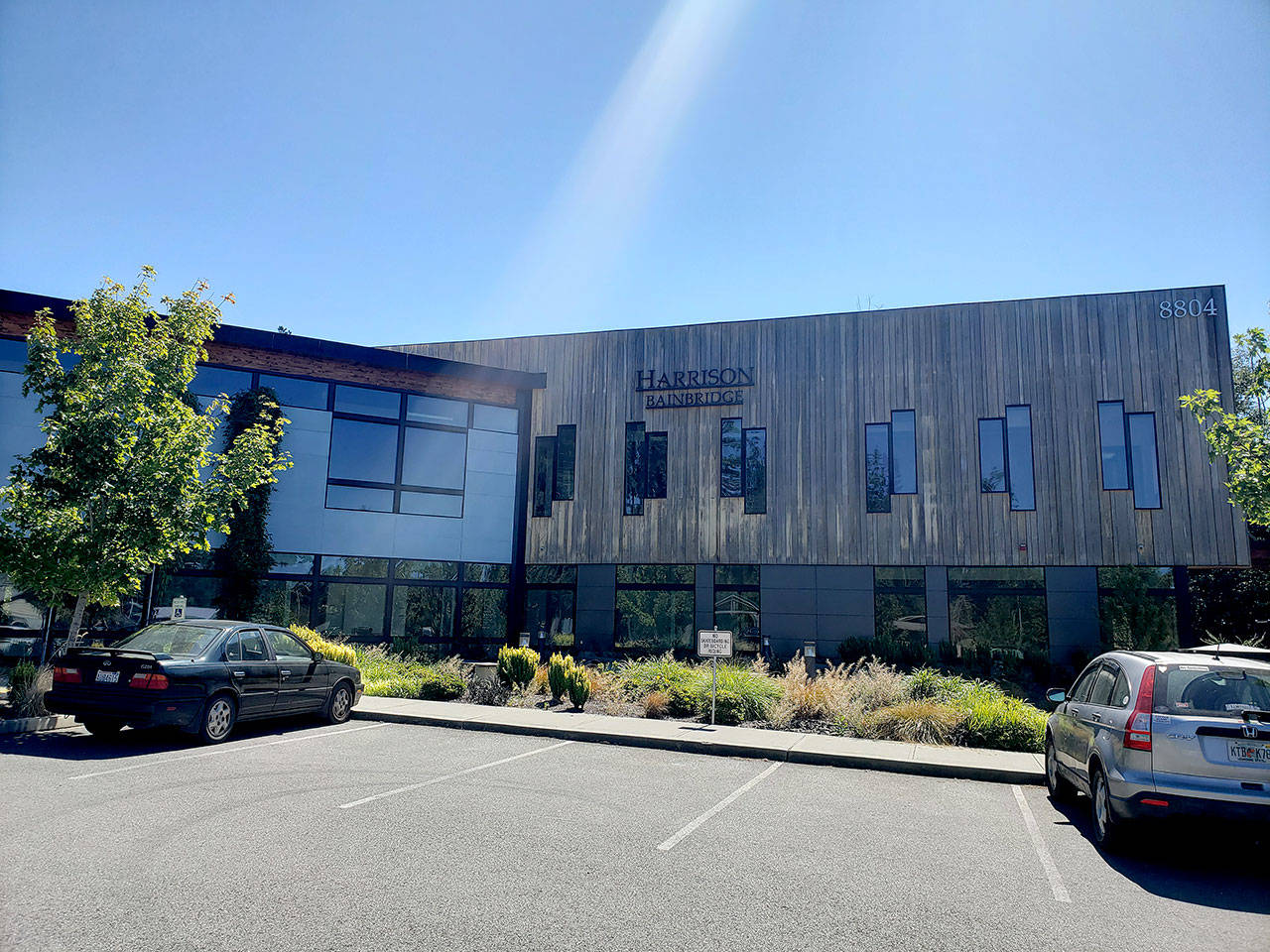Plans for the proposed police station and municipal court building on Madison Avenue were presented last week in a public hearing, putting the project in the hands of a Bainbridge Island hearing examiner.
Andrew Reeves, a hearing examiner with Sound Law Center, will issue a decision on if the proposal complies with city policy in coming days.
The city of Bainbridge Island completed the purchase of the Harrison Medical Center building Jan. 31 and plans to use it as a police station and municipal court building, merging those two services together. The site includes a 3.13-acre parcel with a two-story building of approximately 18,000 square feet, according to the city’s website.
In September of 2019, city council approved moving forward with $12 million of funding from existing city resources and $8 million of funding from long-term debt, as well as issuing councilmanic bonds, also known as Limited Tax General Obligation (LTGO) bonds to fund the design and construction of the new facility.
Reeves will issue a decision within 10 working days, after which there will be a 21-day period to allow for any appeals before the decision is final. If approved, the project schedule anticipates revamping to begin later this year and be completed by 2021.
In general, the proposal included little change except for a 484-square-foot, two-story addition on the west side to enclose a stairway to create a locker room, lunchroom and a new roof overhanging to cover impound storage on the south side of the building, according to city staff.
“In essence, the city made some compromises when they decided to buy an existing building so it’s not a total redesign and doesn’t meet all the programming requirements…that would be desirable,” project manager Barry Loveless said. “It is deemed to be a fully functional building, which is why we decided to proceed with the project.”
During the public hearing, some comments were submitted to the Design Review Board regarding minor concerns about the design of the stormwater facility, lack of a sally port for the transportation of prisoners, and the lack of private space for attorneys and clients to confer.
“While we don’t have a sally port per se, we really have all the functionality of a sally port with the way the building has been designed,” Loveless said.
“A sally port is really like a garage attached to the building where a police car could pull in out of sight, enclosed, and out of the weather in order to transport a prisoner. We don’t have all those functionalities but we do have something that’s very close. The police have decided that they can live with that compromise and what’s designed in the building will provide all the functionality they need.”
Loveless also pointed out that there will be at least one and possibly two private rooms where defendants and their counsel can confer in privacy in the court, while also ensuring that the stormwater system is functioning as designed.
In late January, CHI Franciscan vacated the building and relocated to Wintergreen Lane to allow the city to take ownership. The city is seeking a new site for the police station and courts because, back in 2014, they contracted with Mackenzie Firm to study current facilities and analyze potential options of replacement. According to the city’s website, the study found that the current facility is “undersized” and “outdated for effective, modern law enforcement.”
Below are some of the deficiencies that were listed in the report:
• Structural and site deficiencies: Unreinforced masonry buildings have proven to perform poorly during seismic events. Additionally, the current site lacks sufficient space, has areas that are cramped and difficult to access, has unsecured parking, and has loose wiring for electricity and telecommunications that rests on the rooftop and is easily subject to tampering or damage from adjacent trees.
• Evidence storage: The evidence technician’s desk is located within the evidence storage room, exposing the employee to constant interaction with potentially dangerous substances.
• Records archives: It was the subject of a prior sewage leak, thankfully compromising only one bin of documents. The storage space is filled to capacity.
• Interview rooms: They lack the proper technology to effectively record meetings and provide security and privacy for police, victims and suspects.
• Restrooms: Neither of the two restrooms are fully ADA compliant, one meets the spatial requirements, though it lacks the vertical grab bar necessary. Both are accessed through the public lobby and pose a security risk to officers and staff.



